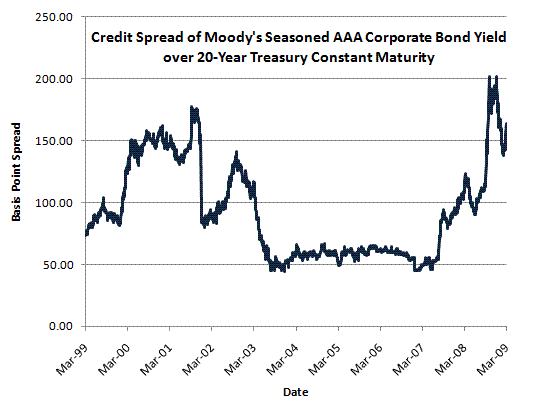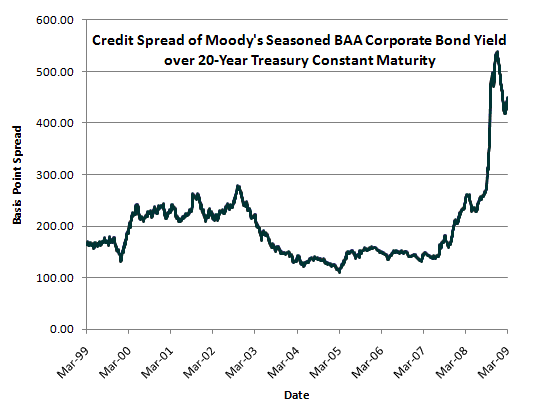Editor's Pick
Investing School presents Realized and Unrealized Gains and Losses posted at Investing School, saying, "It's a simple subject but it's often confused. Unrealized and realized gains explained."
Manshu presents Greater Fool Theory and Keynes Beauty Contest | OneMint posted at OneMint.
Peter presents When Will We See An Increase In Our Paychecks Due To The Stimulus Package? posted at Bible Money Matters, saying, "When will we start seeing an increase in our paychecks - because of the stimulus package?"
Alvaro Fernandez presents Change Your Environment, Change Yourself posted at SharpBrains: Your Window into the Brain Fitness Revolution, saying, "Trading expert Brett Steenbarger's Lesson #4: "When you act as your own trading coach, your challenge is to stay fully conscious, alert to risk and opportunity. One of your greatest threats will be the autopilot mode in which you act without thinking, without full awareness of your situation. If you shift your trading environment, you push yourself to adapt to new situations: you break routines.""
Nickel presents Money Tips from Twitterville posted at fivecentnickel.com.
budgeting
RB presents Start Budgeting Today posted at Recessions Blow, saying, "How to start a budget."
Ben Dinsmore presents Motivation and Your Financial Plan posted at Trees Full of Money, saying, "If you think about it, starting a budget is really no different than starting a new diet and exercise routine.After a few weeks, the results that we were hoping for never materialize (at least not as fast as we hoped) and we end up in worse shape then we started in."
Livingalmostlarge presents still budgeting posted at LivingAlmostLarge.
credit
Jim DeSantis presents Free eBook - Credit Rescue! posted at Emotions and Credit at On Line Tribune, saying, "How emotions impact credit is a subject that few people think about but more and more therapists are talking about. As a Pastoral Counselor I have long known that there is a powerful link between our emotions and our money. We may think that money is all about our rational selves but, in fact, our emotions very much determine our financial decisions."
Credit Shout presents Best Buy Credit Card Review posted at CreditShout.
Credit Card Addict presents American Express Offering Double Membership Rewards Points posted at CreditAddict.
Money Tipper presents How to Opt Out of Unsolicited Credit Card Offers posted at Money Tipper.
Mr Credit Card presents American Express Platinum Card Review posted at Ask Mr Credit Card.
debt
Joe Mueller presents Debt Consolidation Loans For Beginners posted at Debt Consolidation For Beginners, saying, "When you are just becoming aware that you have a mountain of debt that you need to take care of you need a simple approach and sound mind to get you out of debt and back on the path to financial freedom. Debt consolidation might be a route you would benefit from taking, but it might not. Proceed down this road with caution."
Mike presents This Great Depression Will Be Known As The Great Stagflation posted at Great Depression Version 2: Bear Market and Economic Depression, saying, "The current economic crisis is just beginning. It will wind up being known as the Great Stagflation."
The Dough Roller presents Debt Cures by Kevin Trudeau–Do his “secrets” really work? posted at The Dough Roller, saying, "So does the book live up to his sales pitch? No, and it’s not even close."
frugality
Ishanbansal presents 25 Tips to Save Money on Vacation posted at Save Few Bucks, saying, "This article presents practical tips to save money while on vacation."
PFCreditCards presents Lower Your Monthly Subscriptions Cost by Calling posted at PF Credit Cards, saying, "It's simple. Just call to lower your monthly bills."
Dan presents To Tip or NOT to Tip: 3 Case Studies - Opinions? posted at Everyday Finance, saying, "With tip jars showing up in more and more places, this begs the question as to whether this tipping theme has gone too far."
Abigail Perry presents What's in your bills? posted at i pick up pennies, saying, "I thought I had found any and all hidden costs in my bills. Then I took another look and saved almost $100 a year with a four-minute phone call."
Nancy Muller presents Gardeners: What To Plant Now -- Very Comprehensive posted at Recession Depression Therapy, saying, "If you are trying to save on groceries through gardening, but a little unsure of yourself, bookmark this treasure I found. It makes life so much less complicated."
Heidi presents Serving Nutricious Meals on a Budget, Can it Be Done? posted at Little People Wealth.
Nora Dunn presents Lower Your Credit Card Interest Rate and Reduce Your Phone Bill, Immediately and Easily | Wise Bread posted at Wise Bread, saying, "Learn how to easily reduce your credit card interest rates and fees, cable tv, internet, the power bill - you name it."
investing
Ifvat presents Junk Silver Coins - How to Purchase Silver Bullion Under Spot | ifvat.com posted at ifvat, saying, "I’m going to tell you about a certain type of coins that you can purchase under the spot price of silver."
MoneyNing presents Inheriting Generations of Frugal Living posted at Money Ning, saying, "Think ahead and do something for your future generations. Start saving."
etrades presents Why Buy Silver Bullion? posted at eTrades, saying, "Buying Silver Bullion is becoming hugely popular. At present, silver is relatively cheap if you compare it to the cost of gold. With it’s lower price, the vast majority of people can afford to buy greater quantities of it. If you compare it to gold, your average person may be able to afford 1 ounce whereas the same person purchasing silver could buy many more times that amount."
Pinyo presents Investing In Treasury Inflation-Protected Securities posted at Moolanomy.
James Fowlkes presents Would You Have Been Sucked in by Bernie Madoff? How to Avoid a Ponzi Scheme posted at JamesFowlkes.com, saying, "This article will save you from becoming a victim of the next Bernie Madoff-type ponzi scheme."
Lenox Ramsey Jr presents A Guide to Forex Leverage, and Employing it Safely posted at Forex Boost, saying, "A Guide to Forex Leverage, and Employing it Safely"
other
Patrick Smith presents Understanding Job Benefits posted at Real World Advice, saying, "If you are fortunate enough to get a job offer, do not discount the benefits involved, such as health insurance."
Michael presents Save Money with Discounts on Your Auto Insurance Policy posted at Vital Motion, saying, "No one likes to pay auto insurance premiums, but you can cut down the cost of your policy with a number of different discounts."
Dave presents Job Search - The Series posted at Do You Dave Ramsey?.
The Hoss presents AIG Too Big To Fail? posted at Hoss Cents Free Financial Money Magazine, saying, "The Hoss examines AIG and answers the question is AIG to big to fail?"
The Smarter Wallet presents Would You Go Into Business For Yourself During This Recession? posted at The Smarter Wallet.
Kate Kashman presents Transferring Your GI Bill - The Paycheck Chronicles posted at The Paycheck Chronicles, saying, "Many people consider military service for the educational benefits. Beginning in August 2009, the benefits are improving dramatically, including a provision to transfer the benefits to a spouse or child."
Miss M presents The First Time Homebuyer – Starting the Search posted at M is for Money.
Homemaker Barbi (Danelle Ice) presents 5 Surefire Ways to Recession Proof Your Job posted at Homemaker Barbi, saying, "5 Surefire Ways to Recession Proof Your Job: Guest poster Shellie shares several simple steps that can help you avoid being laid off."
saving
retirehappy presents Earning $20,000 Equals Half Million Dollar Nest Egg posted at My Retirement Blog.
RB presents Negotiate to Save Money posted at Recessions Blow, saying, "An article about the importance of negotiating in these tough times and some tips to help you do it."
Brian McKay presents Online Savings Account posted at MonitorBankRates.com, saying, "GMAC Bank is offering a high interest online savings account that currently has an annual percentage yield (APY) of 2.50% which is well above the national average for a savings account."
Sun presents Can You Get a Better Rate at MoneyAisle? posted at The Sun’s Financial Diary.
Jorge presents Adding Insult to Injury - Losing Your FSA Money posted at Independent Minded, saying, "How to keep from losing your FSA money if you lose your job!"
David presents Checking Accounts posted at Personal Finance Ology, saying, "Learn about the different types of checkings accounts and how to keep more of your money!"
stocks
cody butler presents Money Market Investing, What Is It And How Does It Work posted at Dream Life Coaching Blog. Ask your questions., saying, "A basic guide to money market accounts."
taxes
Wenchypoo presents Omnibus Obama Tax Avoidance Tip Sheet and Small Loophole Collection posted at Wisdom From Wenchypoo's Mental Wastebasket.









